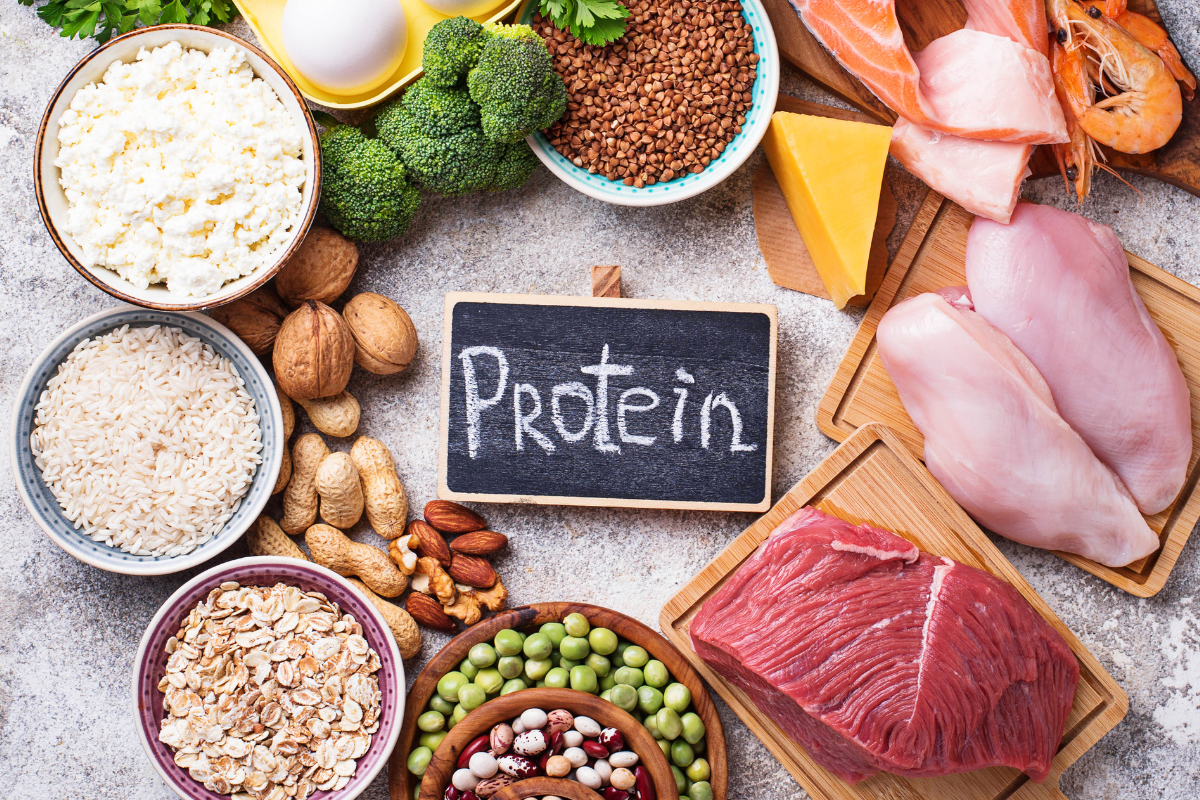PCOS and Fertility: How Nutrition Can Help Manage Symptoms
Polycystic Ovary Syndrome (PCOS) is one of the most common endocrine disorders affecting women of reproductive age—yet it often feels misunderstood or shrouded in confusion. One key aspect of PCOS management is nutrition, as what you eat can play a pivotal role in balancing hormones, improving insulin sensitivity, and supporting overall fertility. In this blog, we’ll delve into how diet can help manage PCOS symptoms, highlight key nutrients, and offer practical tips to get started.
1. What Is PCOS?
PCOS is characterized by a combination of hormonal imbalances, irregular menstrual cycles, and sometimes small cysts on the ovaries. Symptoms vary from person to person but may include:
-
Irregular or absent menstrual cycles
-
Excess hair growth (hirsutism)
-
Acne or oily skin
-
Weight gain, especially around the abdomen
-
Difficulty getting pregnant
Prevalence: Research suggests that PCOS affects 6–12% of women of reproductive age in the United States alone.[1]
Why PCOS Matters for Fertility
Hormonal imbalances—particularly involving elevated insulin, androgens (male hormones), and LH (luteinizing hormone)—can disrupt ovulation, making it harder to conceive. The good news? Lifestyle interventions, including dietary adjustments, have been shown to positively affect hormonal regulation and reproductive health for many women with PCOS.
2. The Nutrition-Hormone Connection
Insulin Resistance and Blood Sugar Control
A significant number of women with PCOS experience insulin resistance, where cells don’t respond efficiently to insulin (the hormone that regulates blood sugar). This can lead to higher insulin levels, which can exacerbate androgen production—driving symptoms like acne, excess hair growth, and cycle irregularities.
-
Key Point: Stabilizing blood sugar through balanced meals can help reduce insulin spikes, potentially improving ovulatory function.
Source: A study in the American Journal of Obstetrics & Gynecology notes that reducing insulin resistance can improve menstrual regularity and fertility outcomes in women with PCOS.[2]
Inflammation
Chronic, low-grade inflammation is often associated with PCOS. While it’s not the sole cause, inflammation can worsen insulin resistance and hormone imbalances. Certain dietary patterns—rich in antioxidants, fiber, and healthy fats—may help lower inflammation markers.
Example: The Mediterranean diet, emphasizing whole grains, vegetables, fruits, lean proteins, and olive oil, has been linked to lower inflammation in some studies.[3]
3. Key Nutrients and Foods to Focus On
1. Complex Carbohydrates
-
Why: Slower digestion and steady glucose release help manage insulin resistance.
-
Examples: Whole grains (quinoa, brown rice), legumes, sweet potatoes, steel-cut oats.
-
Research Note: Diets lower in refined carbs may improve insulin sensitivity and support ovulatory function in women with PCOS.[4]
2. Lean Proteins
-
Why: Protein helps balance blood sugar and aids in tissue repair.
-
Examples: Chicken breast, fish, turkey, eggs (if no egg allergy), low-mercury seafood, or plant-based proteins like lentils and tofu.
-
Research Note: A moderate increase in protein intake has been associated with better appetite control and improved body composition in PCOS patients.[5]
3. Healthy Fats
-
Why: Essential for hormone production and can help reduce inflammation.
-
Examples: Avocados, nuts (like almonds, if no nut allergy), seeds (chia, flax, pumpkin), extra-virgin olive oil.
-
Research Note: Omega-3 fatty acids (e.g., from salmon, walnuts, flaxseeds) may help lower androgen levels in some women with PCOS.[6]
4. Fiber-Rich Foods
-
Why: Fiber supports gut health, helps regulate bowel movements, and can stabilize blood sugar.
-
Examples: Leafy greens, broccoli, legumes, berries, whole fruits (with skin).
-
Research Note: A higher fiber intake is linked to improved insulin sensitivity and reduced risk of metabolic syndrome in PCOS patients.[7]
5. Antioxidant-Rich Produce
-
Why: Can help combat inflammation and oxidative stress.
-
Examples: Berries, colorful peppers, spinach, kale, sweet potatoes, citrus fruits.
-
Research Note: Diets abundant in fruits and vegetables (≥5 servings/day) are often associated with better metabolic markers in women with PCOS.[8]
4. Practical Tips for PCOS-Friendly Eating
-
Portion Control: Focus on balanced meals with 1/2 plate veggies, 1/4 lean protein, and 1/4 complex carbs.
-
Snack Smart: Incorporate protein and fiber—like OVU bars if they’re balanced with fertility-friendly nutrients, or a combo of nuts/seeds and fruit—to avoid blood sugar crashes.
-
Mindful Eating: Pay attention to hunger and fullness cues. Stress eating or emotional eating can lead to rapid blood sugar spikes and insulin fluctuations.
-
Meal Planning: Preparing meals ahead of time can reduce the temptation for takeout or high-sugar convenience foods.
-
Stay Hydrated: Adequate water intake supports digestion and can help with weight management—another crucial aspect if you have PCOS.
5. Lifestyle Factors Beyond Nutrition
Exercise
Regular physical activity can improve insulin sensitivity, support weight management, and boost mood—especially important if you’re dealing with the emotional toll of fertility challenges.
Tip: Moderate-intensity workouts (like brisk walking, cycling, or yoga) are often recommended to help balance hormones without over-stressing the body.
Stress Management
Chronically elevated cortisol (stress hormone) can further disrupt insulin and sex hormones. Techniques like deep breathing, meditation, journaling, or counseling can help lower stress levels.
Adequate Sleep
Poor sleep correlates with worsened insulin resistance and hormonal imbalance. Aim for 7–9 hours of quality rest per night. If you struggle, consider improving your sleep hygiene (consistent bedtime, minimal screen time, a dark and cool room).
6. Frequently Asked Questions
Q: Do supplements help with PCOS?
A: Certain supplements—like myo-inositol, vitamin D, and omega-3 fatty acids—have shown promise in managing insulin resistance and supporting ovulatory function in women with PCOS.[9] Always consult with a healthcare provider for personalized recommendations.
Q: Can weight loss alone solve PCOS?
A: While a 5–10% loss in body weight can significantly improve symptoms for many women, PCOS is a complex condition with genetic and hormonal factors. Weight management is one component of a broader approach involving diet, exercise, and possibly medication.
Q: Is it safe to try a low-carb diet?
A: Some women find success with moderately low-carb or balanced carb diets. However, extreme diets (like keto) may not be appropriate for everyone, especially if you’re trying to conceive. It’s best to get professional guidance before making drastic dietary changes.
7. References
-
Centers for Disease Control and Prevention (CDC). “Polycystic Ovary Syndrome (PCOS).” cdc.gov/
-
Legro, R. S. (2012). “Obesity and PCOS: Implications for Diagnosis and Treatment.” Seminars in Reproductive Medicine.
-
Esposito, K., et al. (2013). “Mediterranean diet and metabolic syndrome: The cross-sectional findings from the Moli-sani study.” Public Health Nutrition.
-
Moran, L. J., et al. (2013). “Diet and IVF outcomes in overweight and obese women with PCOS.” Reproductive Biomedicine Online.
-
Gower, B. A., et al. (2010). “Effects of a high-protein vs. standard protein diet on weight loss, body composition, and blood parameters in overweight or obese individuals.” Nutrition & Metabolism.
-
Krampitz, G., et al. (2015). “Omega-3 fatty acids and PCOS: A review.” Gynecological Endocrinology.
-
Liu, S., et al. (2003). “A prospective study of dietary fiber intake and risk of type 2 diabetes in women.” Diabetes Care.
-
Rotterdam ESHRE/ASRM‐Sponsored PCOS Consensus Workshop Group. (2004). “Revised 2003 consensus on diagnostic criteria and long‐term health risks related to PCOS.” Fertility and Sterility.
-
Genazzani, A. D. (2016). “Myo-inositol improves endocrine parameters and insulin resistance in PCOS.” Gynecological Endocrinology.
Conclusion
Nutrition can be a powerful ally in managing PCOS and improving fertility prospects. By prioritizing balanced blood sugar, anti-inflammatory foods, and adequate protein, you can take meaningful steps toward hormonal balance. While there’s no “one-size-fits-all” approach—PCOS is complex and individualized—lifestyle and dietary changes often yield significant benefits.
As you embark on or continue your fertility journey, remember: small, consistent tweaks can create lasting changes. If you’re unsure where to start, a registered dietitian or healthcare provider experienced in PCOS can offer personalized guidance.
Author’s Note
As someone who has personally navigated fertility challenges—and dove headfirst into nutrition research along the way—I know that every bit of reliable information can bring relief and empowerment. It’s my hope that this post inspires you to explore your dietary choices with optimism and curiosity. After all, fueling your body well isn’t just about preparing for the possibility of pregnancy; it’s also about nurturing yourself in the here and now.
If you have questions or suggestions for future blog topics, feel free to reach out! The OVU community is all about shared experiences and knowledge. We’re in this together, and we can’t wait to support your healthy, hopeful journey.
(Disclaimer: This blog is for informational purposes only and does not constitute medical advice. Always consult with a healthcare professional for personalized recommendations.)






